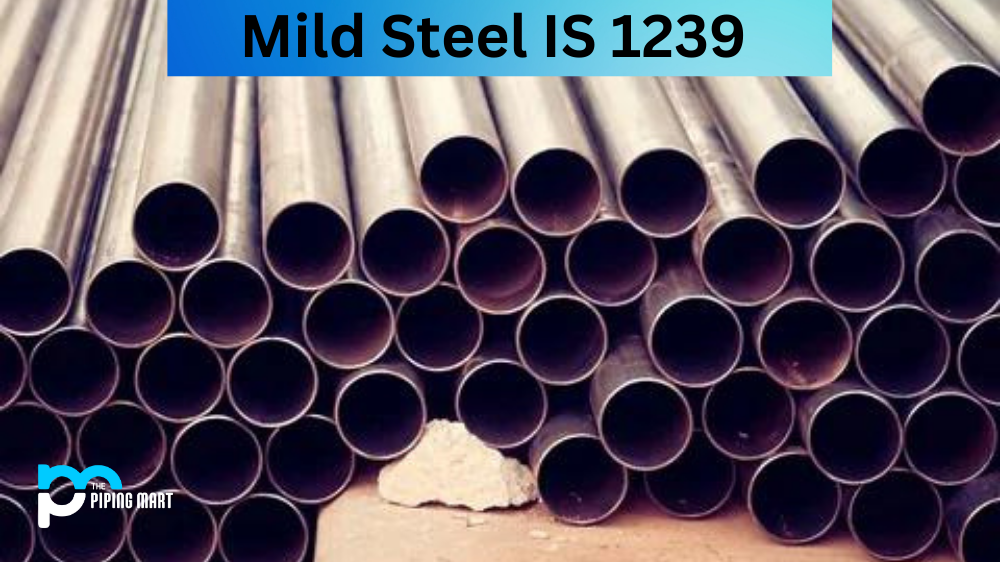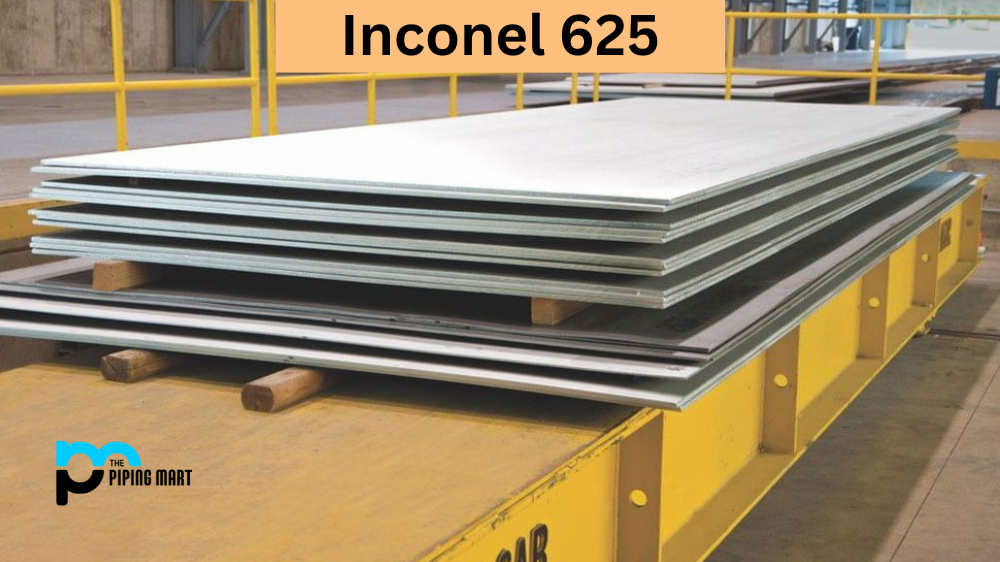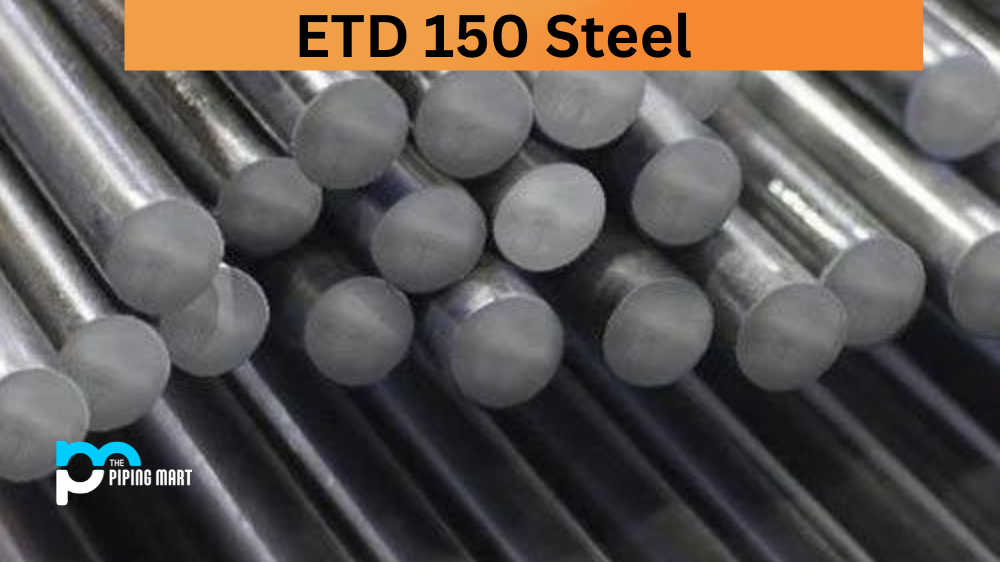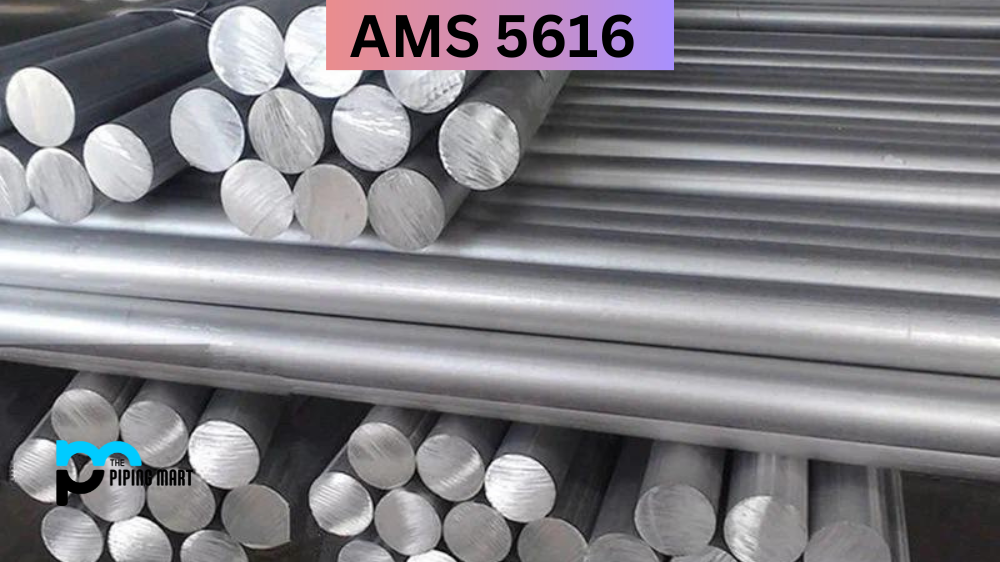Mild Steel, or IS 1239 as it is known, is a type of Steel that is popularly used in construction and fabrication due to its exceptional durability and strength. It has many desirable properties that make it an ideal choice for a variety of applications. In this blog post, we’ll take a closer look at what makes Mild Steel IS 1239 so special and discuss some of its uses and features.
What Forms is IS 1239 Mild Steel Available at Piping Mart?
- IS 1239 Mild Steel 1239 Pipes
- IS 1239 Mild Steel 1239 Tubes
IS 1239 Chemical Composition
Mild Steel IS 1239 is composed mainly of iron with the addition of carbon, manganese, and other alloying elements. This combination gives the Steel its strength and hardness. The carbon content in the Steel affects the tensile strength and ductility of the material when heated or cooled.
IS 1239 Chemical Properties
Mild Steel IS 1239 has good corrosion resistance because it contains a low amount of carbon and manganese, which helps prevent rusting. It also has good heat resistance properties, which make it suitable for use in high-temperature environments such as furnace walls or gas pipes. Additionally, its high melting point makes it perfect for welding without any post-weld heat treatment required.
IS 1239 Mechanical Properties
The mechanical properties of Mild Steel IS 1239 are superior to those of other types of Steel due to its higher tensile strength and yield strength values. It also exhibits excellent fatigue resistance, meaning that it can withstand repeated cycles of loading without failing prematurely. This makes it ideal for use in applications such as bridges or cranes where large loads may be applied regularly over extended periods of time.
IS 1239 Physical Properties
IS 1239 has excellent formability due to its malleable nature, which allows it to be hammered or rolled into various shapes without losing its shape or dimensional integrity. Its low thermal conductivity also makes it a great choice for insulation applications, as well as being resistant to thermal shock when exposed to sudden changes in temperature.
IS 1239 Uses
Due to its numerous beneficial properties, Mild Steel IS 1239 is widely used in many different industries, such as automotive, aerospace, construction, and manufacturing, amongst others. It can be used to manufacture components such as car bodies, chassis parts, engine components, frames, and structural supports, as well as being used for welding operations where high levels of accuracy are required along with great tensile strength results after welding completion.
Structural Applications
IS 1239 Material can be used for a variety of structural applications, including beams, columns, joists, decking, purlins, and trusses. The material is also often used in the construction of buildings and bridges.
Pipelines
Mild Steel IS 1239 is often used in the construction of pipelines. The material is resistant to corrosion and can withstand high temperatures, making it ideal for transporting oil and gas.
Storage Tanks
Mild Steel IS 1239 is also often used in the construction of storage tanks. The material is durable and can withstand high temperatures, making it ideal for storing liquids such as oil and gasoline.
Pressure Vessels
Mild Steel IS 1239 is also often used in the construction of pressure vessels. The material is resistant to corrosion and can withstand high temperatures and pressures, making it ideal for containing liquids and gases under extreme conditions.
Boilers
Mild Steel IS 1239 is also often used in the construction of boilers. The material is resistant to corrosion and can withstand high temperatures, making it ideal for generating steam.
Heat Exchangers
Mild Steel IS 1239 is also often used in the construction of heat exchangers. The material is resistant to corrosion and can withstand high temperatures, making it ideal for transferring heat between two fluids or gases.
Automotive Components
Mild Steel IS 1239 is also often used in the construction of automotive components. The material is durable and has a good resistance to impact, making it ideal for use in car bodies and engine parts.
Corrosion Resistance
As previously mentioned, Mild Steel IS 1239 has good corrosion resistance thanks to its low levels of carbon and manganese content, making it an ideal choice for outdoor applications exposed to moisture or harsh weather conditions, such as bridges or shipbuilding components where extended exposure could lead to premature failure from corrosion if unsuitable materials were used instead.
Mild Steel IS 1239 Equivalent
| IS 1239 material specification & equivalent grades | ||||
|---|---|---|---|---|
| IS 1239 yst 355 | IS 1239 yst 355 | Tata Structura 355 | DIN: 2440, 2441, BS: 1387, S: 3589, 1239 | ISO: 65 |
Mild Steel IS 1239 Heat Resistance
With its high-temperature resistance, Mild Steel IS 1239 is an ideal material for use in applications that are exposed to significant and sustained heat. Its ability to resist heat makes it a popular choice for applications such as pipework and flues that must transport hot liquids or gases. Its outlook may be plain and unremarkable compared to other metals, but its resilience to heat makes it a valuable building block in many engineering projects. As a result of its superior qualities, Mild Steel IS 1239 stands out as one of the most cost-effective ways packages offering maximum protection against extreme temperatures.
Mild Steel IS 1239 Heat Treatment
Heat treatment is an important process if you are considering the use of mild Steel IS 1239 in any engineering projects. Utilizing a heat treatment ensures that the metal is hardened by raising and lowering its temperature, making it more durable, stronger, and sturdier. The importance of this process cannot be over-emphasized, as it dramatically increases the metal’s ability to withstand force, pressure, and corrosion. Heat treating your mild Steel IS 1239 ensures that it can survive in harsh environments and last longer without suffering any damage. Thus heat treatment provides excellent value for money when dealing with mild Steel IS 1239 applications.
Mild Steel IS 1239 Machining
Machining with IS 1239 Mild Steel can be tricky. It has a low carbon content, so it is not as resistant to cutting tools as higher-grade steels. Also, given its hardness, it may require specialized tooling to get the desired outcomes. It’s important to choose the right machining techniques when working with this material – for example, slow feed and high-speed cutting are advised in order to reduce strain on the cutting tools and achieve a satisfactory result. To ensure consistent machining quality and reliable performance, it is also essential to select cutting tools of suitable strength and geometry. With the right approach, Mild Steel IS 1239 can be used effectively in a range of fabrication projects.
Mild Steel IS 1239 Welding
Welding is a core application that utilizes mild Steel IS 1239. This special grade of Steel is ideal for the welding process because it features low carbon content, which helps to prevent cracking and other issues through very high heat levels. Mild Steel IS 1239 is extremely versatile as it can be used for various purposes, such as equipment fabrication, vehicle frames, and bridges. It also provides excellent arc stability and can withstand repeated welding operations. For superior toughness and tensile strength qualities, IS 1239 welds are often requested. As such, it’s become the most popular choice among many professionals in automotive and structural projects.
Conclusion:
Mild Steel IS 1239 is an extremely versatile material that can be used in a wide range of industries thanks to its unique combination of chemical composition, which gives it superior mechanical properties making it resistant to wear and tear while still being malleable enough for forming operations without compromising on strength or performance characteristics when exposed to extreme temperatures or corrosive environments making it an ideal choice for long-term projects requiring reliable results each time regardless of external factors like weather conditions or heavy usage scenarios like bridges or cranes handling large loads on a regular basis with minimal maintenance required over extended periods of time thereby increasing cost-effectiveness along with reliability over traditional alternatives like cast iron or hardwood timbers among others where failure rates could be much higher under similar stress test scenarios. Therefore understanding more about mild Steel will ensure you choose the correct material for your application needs, whether you are setting up shop outdoors with rust protection requirements, need heat resistive material, require formability compatibility, etc. A little research goes a long way!
Sakshee is a talented blogger, with a particular focus on the Business and Metal Industry. She is passionate about sharing her insights on various metal products and helping professionals to make a better decisions.




